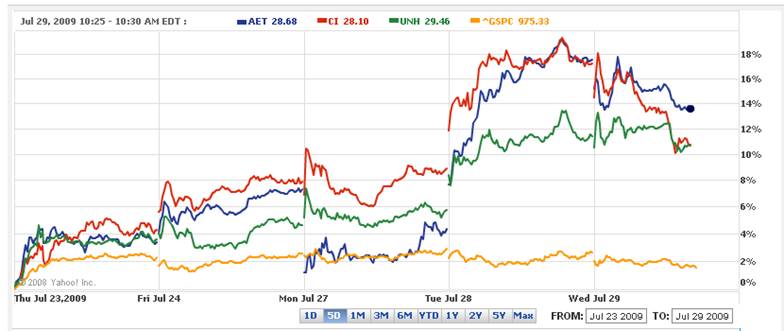NewYork Times technology columnist David Pogue is mounting a campaign against those canned messages that cellular carriers play after the greeting on your mobile phone voicemail (hat tip Mark Thoma’s son) – you know, the ones that say “to leave a voice message, wait for the beep,” only they take 30 seconds doing so, for th sole purpose of chewing up the mobile phone minutes of the person calling you. (According to Pogue, multiple carrier executives have admitted that the sole purpose of these value-destroying messages is to maximize airtime and hence revenue.)
This is exactly the same kind of “innovation” that we’ve seen in financial services and in health insurance. In each case, it’s what you get when you have too much concentration, so that a small group of oligopolists can effectively agree on the same business practice that generates profits at the consumer’s expense.
